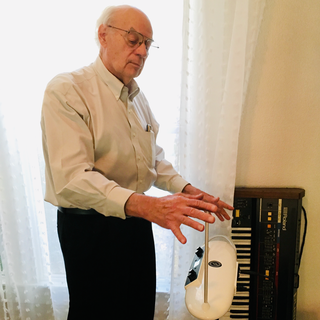A Quote by Sigmund Freud
It must be pointed out, however, that strictly speaking it is incorrect to talk of the dominance of the pleasure principle over the course of mental processes. If such a dominance existed, the immense majority of our mental processes would have to be accompanied by pleasure or to lead to pleasure, whereas universal experience completely contradicts any such conclusion.
Related Quotes
At the heart of our desires is eternal happiness without the slightest hint of misery. You could say that we are pleasure seekers; however, seeking pleasure from the objects of our five senses produces fleeting moments of pleasure whereas, pleasure of one's self, a soul, is eternal and ever-increasing pleasure.
Christianity cannot erase man's need for pleasure, nor can it eradicate the various sources of pleasure. What it can do, however, and what it has been extremely effective in accomplishing, is to inculcate guilt in connection with pleasure. The pursuit of pleasure, when accompanied by guilt, becomes a means of perpetuating chronic guilt, and this serves to reinforce one's dependence on God.
In the theory of psycho-analysis we have no hesitation in assuming that the course taken by mental events is automatically regulated by the pleasure principle. We believe, that is to say, that the course of those events is invariably set in motion by an unpleasurable tension, and that it takes a direction such that its final outcome coincides with a lowering of that tension that is, with an avoidance of unpleasure or a production of pleasure.
Read from a distant star, the majuscule script of our earthly existence would perhaps lead to the conclusion that the earth was the distinctively ascetic planet, a nook of disgruntled, arrogant creatures filled with a profound disgust with themselves, at the earth, at all life, who inflict as much pain on themselves as they possibly can out of pleasure in inflicting pain which is probably their only pleasure.
Eating with the fullest pleasure - pleasure, that is, that does not depend on ignorance - is perhaps the profoundest enactment of our connection with the world. In this pleasure we experience our dependence and our gratitude, for we are living in a mystery, from creatures we did not make and powers we cannot comprehend.
Sorrow, terror, anguish, despair itself are often the chosen expressions of an approximation to the highest good. Our sympathy in tragic fiction depends on this principle; tragedy delights by affording a shadow of the pleasure which exists in pain. This is the source also of the melancholy which is inseparable from the sweetest melody. The pleasure that is in sorrow is sweeter than the pleasure of pleasure itself.
When you're comfortable and secure, it's not enough. The mind doesn't stop there because it has to continue to focus itself as this body, so it moves to pleasure. And pleasure really is a non-existent thing. When we're experiencing pleasure, we're trying to hold onto it as it leaves, so it really isn't pleasure. Pleasure is pain because we're grasping.
Pornography reveals that male pleasure is inextricably tied to victimizing, hurting, exploiting; that sexual fun and sexual passion in the privacy of the male imagination are inseparable from the brutality of male history. The private world of sexual dominance that men demand as their right and their freedom is the mirror image of the public world of sadism and atrocity that men consistently and self-righteously deplore. It is in the male experience of pleasure that one finds the meaning of male history.




































